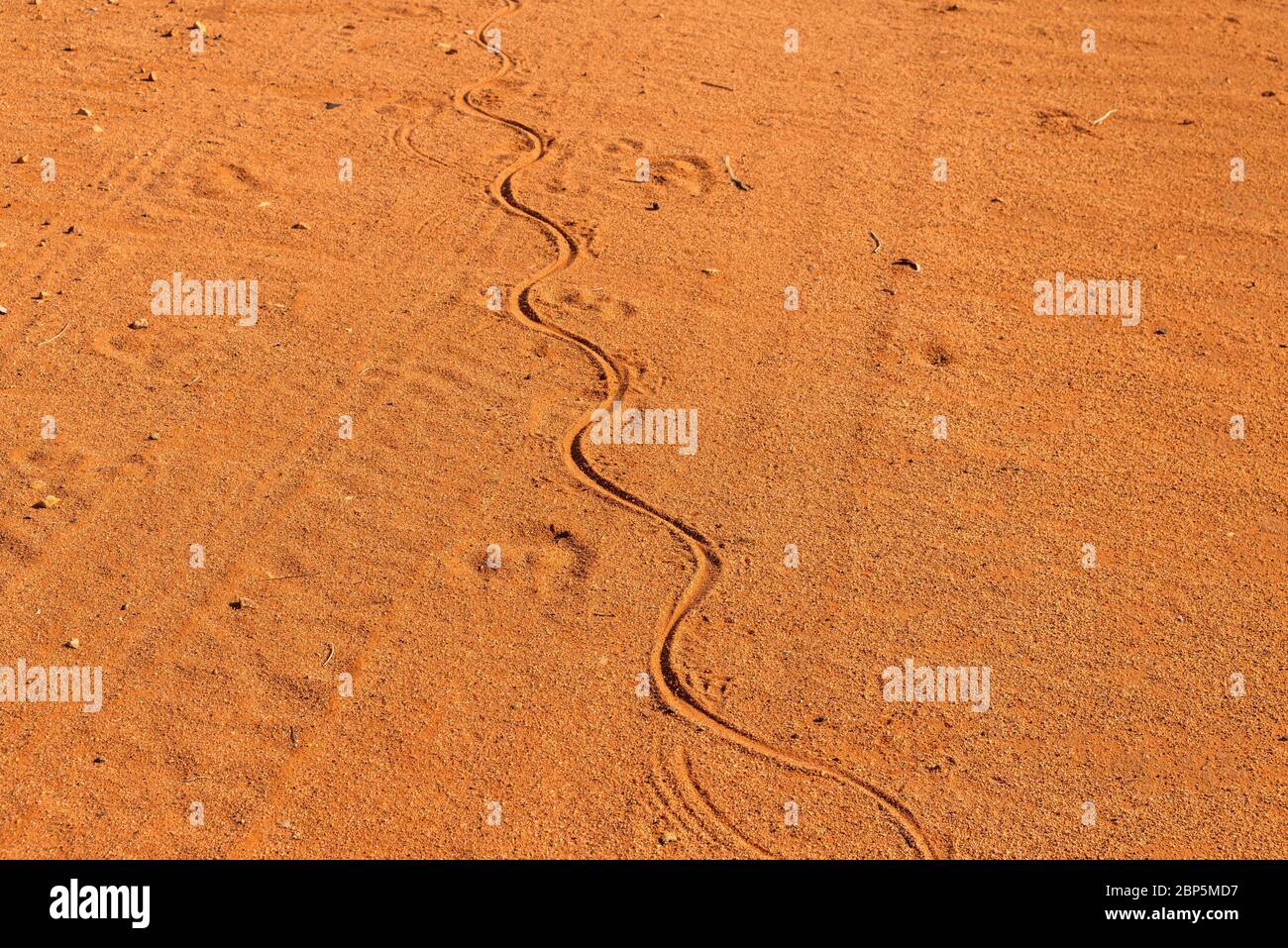
Snake tracks sand snake tracks hires stock photography and images Alamy
Rectilinear Concertina Side-Pushing What to do if you identify snake tracks in your yard Do snakes leave tracks? Yes, snake tracks or snake footprints are known as lateral undulation. Snakes will leave tracks under certain conditions as not all snakes move in the same side-to-side manner.

155 Snake Tracks Sand Images, Stock Photos & Vectors Shutterstock
RF 2DFHMGF - Snake tracks on sand. RM AEH5WJ - Snake tracks on sand dune Death Valley National Park California. RF 2A722EJ - Snake Tracks in Nature with Leaves in Wet Sand. RM A111K4 - Snake and goanna tracks, Red Centre near Alice Springs, Northern Territory, Australia. RF JJF2KW - Timber rattlesnake basking on train tracks (Crotalus.

Snake tracks on sand dune editorial photo. Image of footprint 11082561
Find the perfect snake tracks in sand stock photo, image, vector, illustration or 360 image. Available for both RF and RM licensing.

"snake tracks in the sand" by wilderness Redbubble
Locomotion There are 5 main types of snake locomotion on land: Lateral Undulations Side-Winding Concertina Rectilinear Slide-Pushing Each of these will be described in detail below and have an accompanying drawing to show how the snake moves and what tracks it leaves behind. Being creatures without limbs, snakes move in very unique ways.
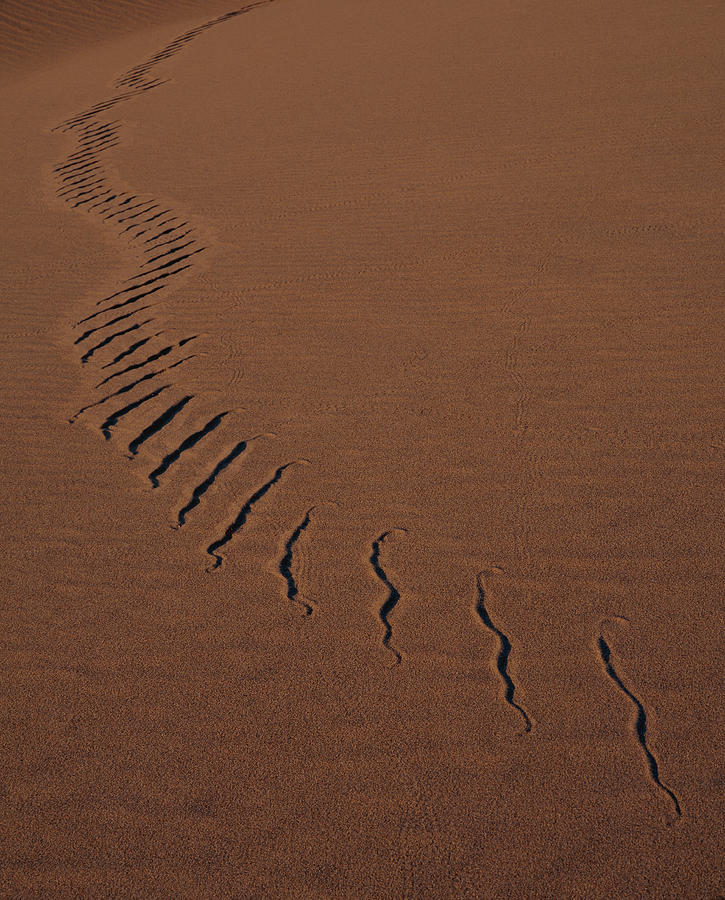
Snake Track In Sand Photograph by G. Brad Lewis Pixels
Snack tracks in the sand A sidewinder - Bitis peringueyi - in the Namib desert, making tracks climbing a dune in late afternoon light Snake and bird crossing tracks in the sand on the beach in the sand dunes early in the morning on sunny summer morning A snake track pattern on a sandy dirt road over tyre treads.
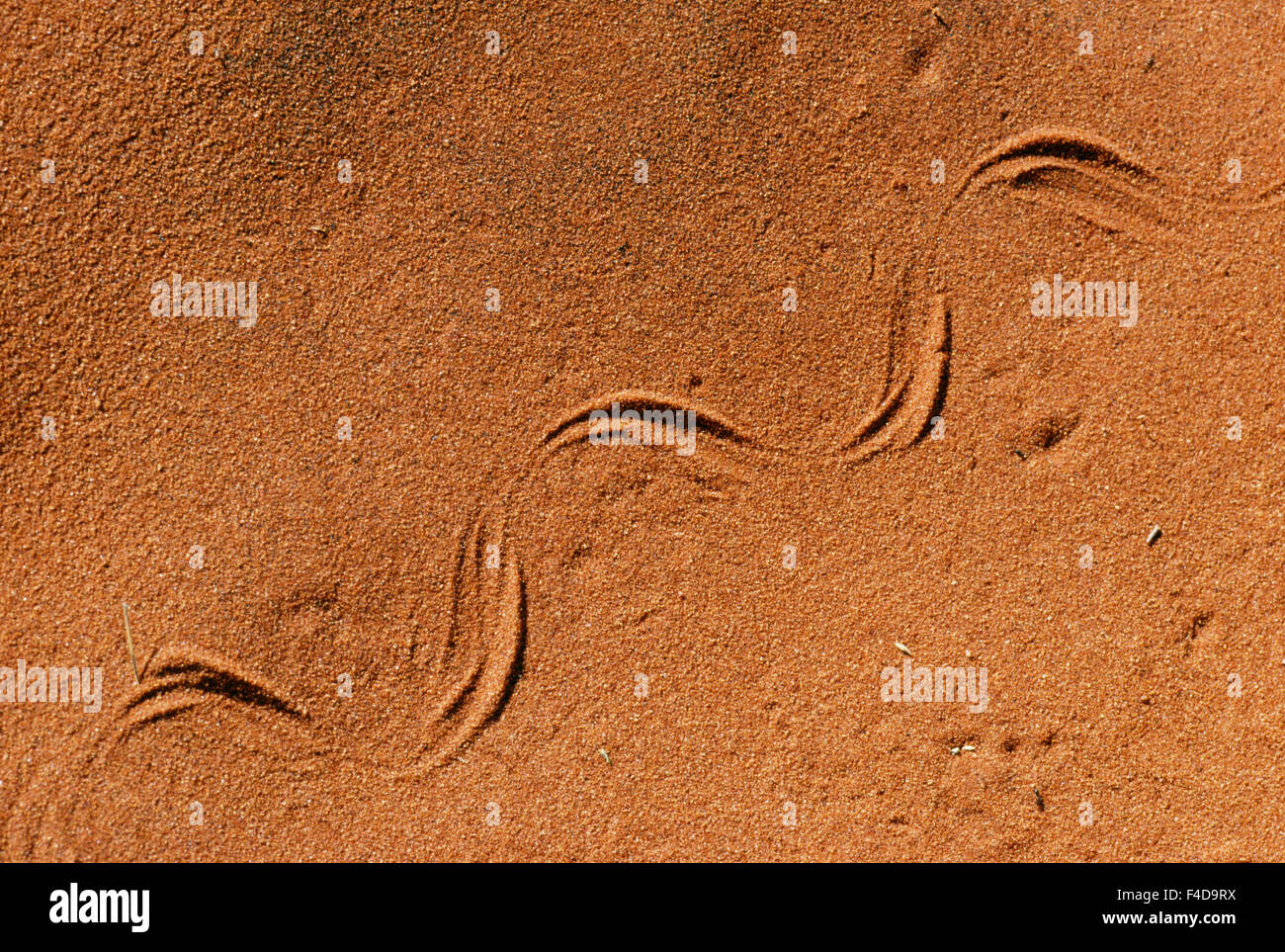
Trails of snake on sand, overhead view Stock Photo Alamy
Resources. "Herp" is a general term that refers to both reptiles and amphibians. Researchers that study these species are known as herpetologists. This group of animals includes: alligators, anurans (frogs and toads), lizards, salamanders, snakes, turtles, and more. The gallery below contains over 120 photos of reptile and amphibian tracks.

Snake Tracks Identification Guide for Dirt, Sand, and More AZ Animals
RM RN5PF9 -. Animal Ecology. Animal ecology. U nil. in the trees. Tracks of the prairie deer mouse are frequently to be seen on the sand. Fowler's toad and the hognose snake are the only amphibian and reptile that regularly occur. The grass, slirub, and Cottonwood stages ordinarily occupy relatively nar- row belts parallel to the lake shore.

Snake Trace On Sand Image & Photo (Free Trial) Bigstock
What do you do when you notice snake tracks? Snake Movements and the Tracks They Create Concertina Movement With concertina movement, the snake anchors part of its body to a surface and then pulls or pushes another section of its body towards or away from the part of the body which is anchored.
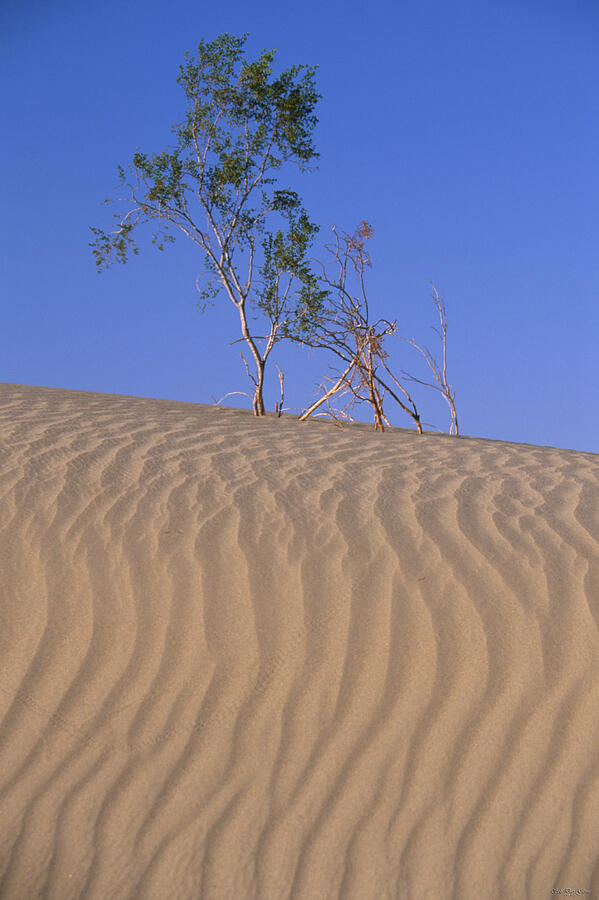
Snake Tracks The Sand Dunes Photograph by Soli Deo Gloria Wilderness And Wildlife Photography
These mysterious circular marks are found on the bark of eucalypts in wild places, as well as on the fences of towns like Toowoomba. They are made by the mouths of nocturnal molluscs, the native Red Triangle Slug, which grazes on wet nights on the algae that grows on those surfaces.

Sidewinding snake tracks across the Stock image Colourbox
Additionally, snake tracks in soft soil or sand can offer valuable insights. These tracks appear as distinct, wavy lines, often accompanied by a drag mark caused by the snake's belly. By closely examining these tracks, you may be able to determine the species of snake that has been in your vicinity, allowing you to take appropriate precautionary measures.
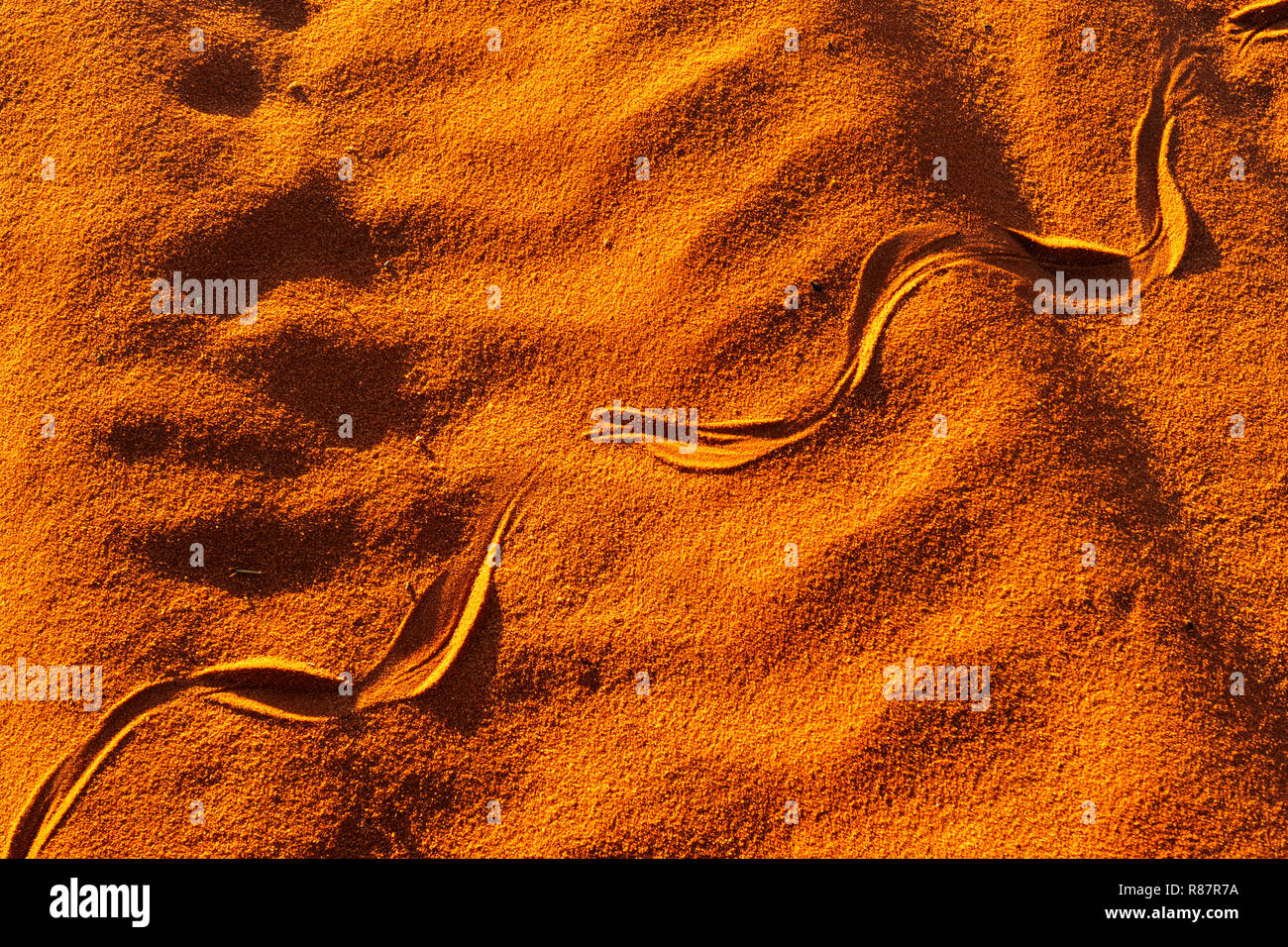
Snake track in sand hires stock photography and images Alamy
The entire snake story was based on a few marks in the sand that turned out to be tail drags of kangaroo rats. The raven had simply pecked at a white spot in the sand and then took flight - somehow we turned this into a pretty amazing story.. We all assumed the kangaroo rat tail drags were snake tracks despite insufficient evidence.
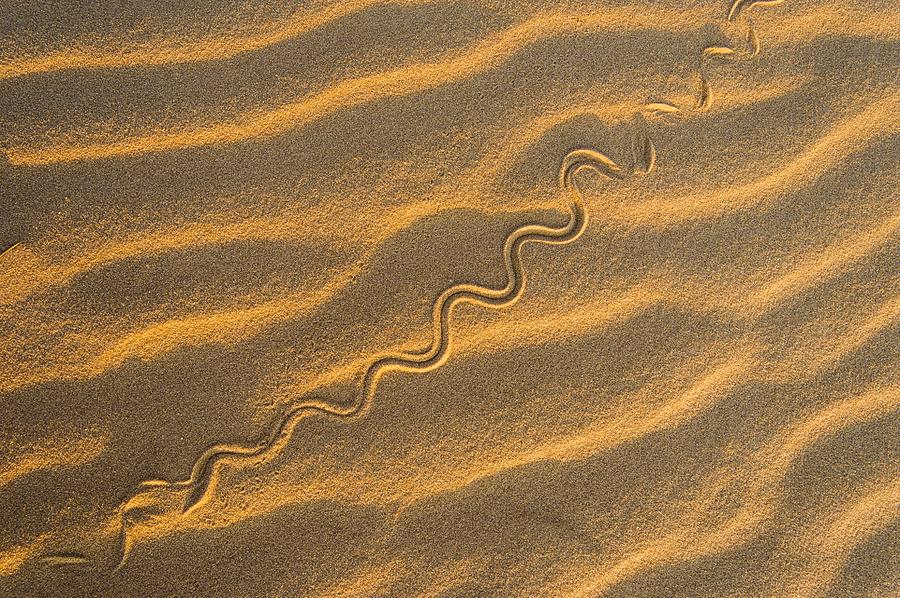
Snake track on a sand dune Photograph by Science Photo Library Fine Art America
Summer 2002. Snake trail crossing a dirt trail. Snake trail crossing a dirt trail. Snake track crossing a dirt road in a mixed forest. A Snake Battle to the Death A battle began between a kingsnake and a rattlesnake. Kingsnakes are known for eating other snakes, particularly rattlers.
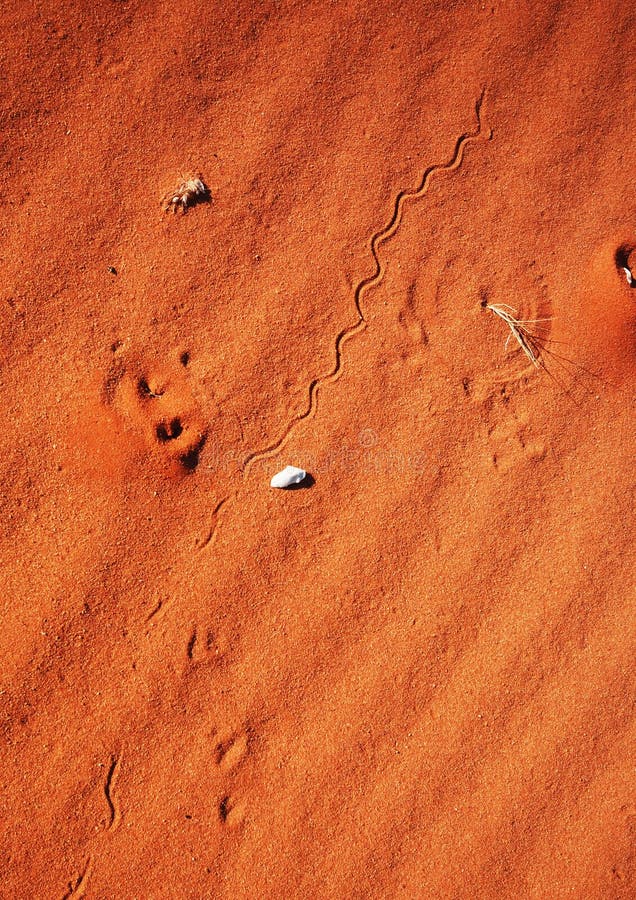
Snake tracks on sand dune editorial photo. Image of footprint 11082561
Yesterday, for example, while climbing a small dune, I stepped over something frightening: a long, winding snake track in the soft sand. Fearful of snakes, I froze, wondering if the track-maker was nearby. My eyes followed its trail till it disappeared into the woods, and from the markings, I could tell it was a big one. Then last night, as I.

Snake Tracks in the Sand MJ Springett
32. Muskrat Tracks. Muskrat tracks are hand-like much like the raccoon, but smaller measuring approximately 2-3". Their prints have five long finger-like toes on their hind foot and four long fingers on their front. Muskrat tracks are found near marshes, beaver ponds, and similar slow-moving waterways. ©

African Python Snake Tracks in the Sand Kruger National Park
Snake Tracks. Like any other animal, snakes leave behind tracks as they move around. These tracks may appear as a series of parallel lines or a wavy pattern on the ground, usually resembling a series of S-shaped markings. Snake tracks are more likely found in your yard's mud, sand, or dusty areas. By familiarizing yourself with these tracks.

01676501 Frans Lanting /
Snakes have five ways of moving, and the tracks will reflect these locomotions. Let's get started!